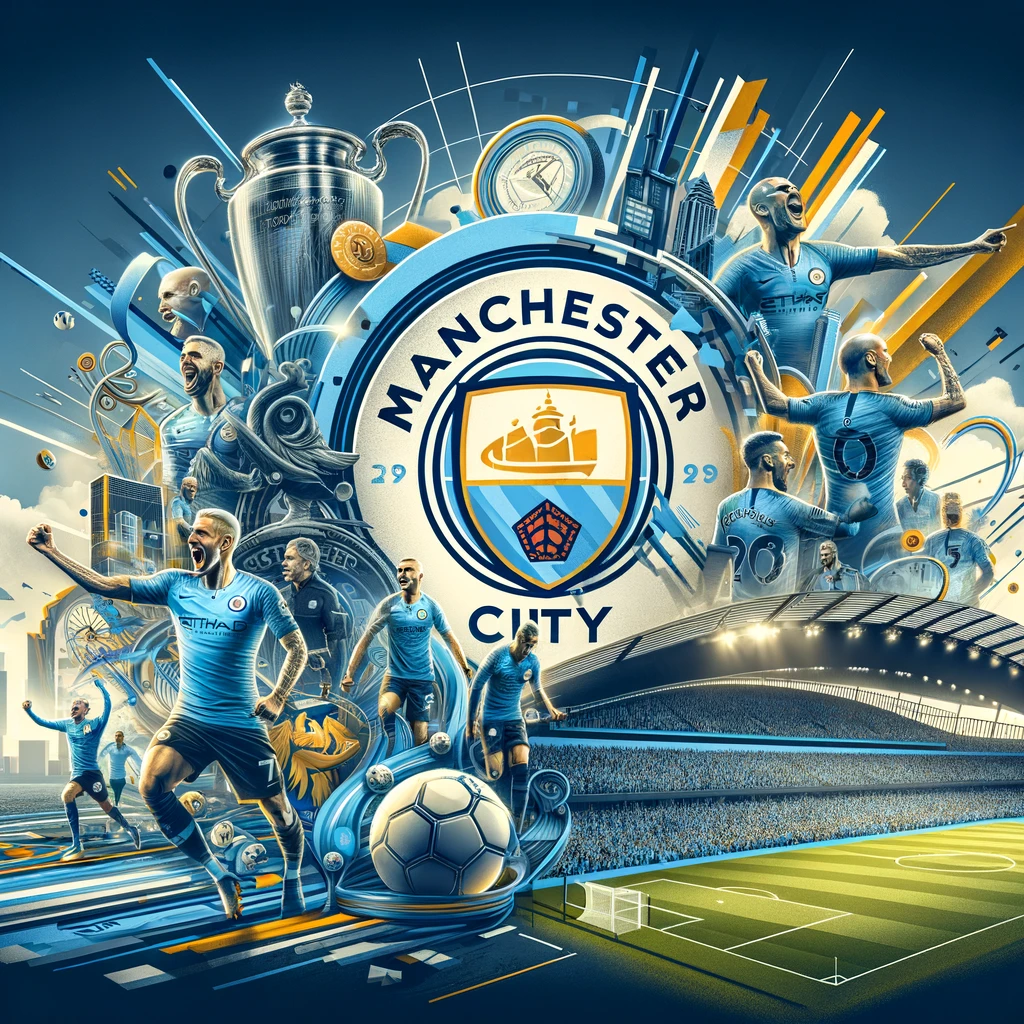Introduction
Manchester City Football Club, often simply known as Man City, has transformed into one of the most successful and influential clubs in world football. Based in Manchester, England, the club has a rich history that dates back to its founding in 1880 as St. Mark’s (West Gorton), later becoming Ardwick Association Football Club, and finally Manchester City in 1894.
Early Years and Struggles
Manchester City’s early years were marked by moderate success, including winning the FA Cup in 1904. However, for much of the 20th century, the club faced various challenges, including financial struggles and fluctuating performances, which led to alternating spells in different divisions.
The Turning Point
A significant turning point in the club’s history came in 2008 with the takeover by Abu Dhabi United Group. This acquisition dramatically changed the club’s fortunes, ushering in a period of substantial financial investment. The club began to attract top talents and managers, which gradually turned it into a formidable force in both English and European football.
Era of Success
Under the stewardship of managers like Roberto Mancini, Manuel Pellegrini, and particularly Pep Guardiola, Manchester City has enjoyed a period of unprecedented success. They have won multiple Premier League titles, FA Cups, and League Cups, marking their dominance in English football.
Playing Style and Philosophy
Manchester City is known for its attractive style of play, characterized by possession-based football, tactical flexibility, and an emphasis on attacking football. Under Guardiola, the team has been lauded for its high-pressing, fluid movement, and innovative tactics, setting new standards in football performance.
Impact on Community and Fans
Beyond the pitch, Manchester City has a strong connection with its community and fans. The club’s investment in local infrastructure, youth development, and community projects has reinforced its commitment to the Manchester region and its people.
Global Brand and Future Aspirations
Today, Manchester City is not just a football club; it’s a global brand with a growing international fan base. The club’s vision extends beyond immediate footballing success, focusing on long-term sustainability, global outreach, and technological innovation in sports.
Conclusion
Manchester City’s journey from humble beginnings to becoming one of the world’s most successful football clubs is a story of transformation, ambition, and strategic vision. As the club continues to compete at the highest level, it remains a symbol of modern football excellence, driven by innovation, success, and a deep connection with its roots.
Manchester City MCFC Stats
- Foundation: Manchester City was founded in 1880 as St. Mark’s (West Gorton), later becoming Ardwick Association Football Club, and finally Manchester City in 1894.
- Premier League Titles: The club has won several Premier League titles, with a notable period of success in the 2010s and 2020s under managers like Roberto Mancini, Manuel Pellegrini, and Pep Guardiola.
- Record Points in a Season: In the 2017-2018 season, Manchester City set a Premier League record by achieving 100 points in a single season, the highest total in the history of the competition.
- Domestic Treble: In the 2018-2019 season, Manchester City became the first English men’s team to win the domestic treble, securing the Premier League, FA Cup, and EFL Cup in the same season.
- UEFA Champions League: The club has become a regular participant in the UEFA Champions League, reaching the final in the 2020-2021 season.
- Stadium: Manchester City plays its home games at the Etihad Stadium, which has a capacity of over 53,000 and was originally built for the 2002 Commonwealth Games.
- Ownership: In 2008, the club was acquired by the Abu Dhabi United Group, leading to significant investment in players, infrastructure, and global branding.
- Youth Development: The club is known for its state-of-the-art training facility and youth academy, which is part of the wider Etihad Campus development.
- Financial Growth: Since the takeover in 2008, Manchester City has seen substantial financial growth, becoming one of the wealthiest football clubs in the world.
- Global Fanbase: The club has expanded its global fanbase, with supporters’ groups established worldwide, thanks to its on-field success and strategic global outreach.

